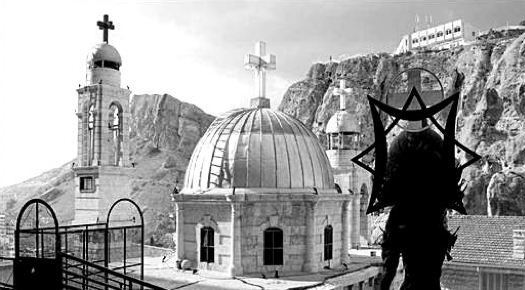
Authorities in Iran are planning on forcefully converting a seized Assyrian church into an Islamic mosque. The property, belonging to Chaldean Catholic Church on Patrice Lumumba Street in Tehran, was seized two years ago on grounds of having it converted into an Islamic prayer center. Even though the structure belonging to the Iranian Assyrian community has not been converted into a mosque as yet, authorities refused to hand it back to its rightful owners.
Constant complaints from representatives of the Christian minority about the illegal confiscation of the church have fallen on deaf ears, said Jonathan Bet Kelia, a member of parliament –also known as Majlis. Reportedly, Kelia approached Ali Younesi –special assistant to Iranian President Hassan Rouhani on ethnic minorities affairs– on this matter but was told straight up that nothing could be done to help the Assyrians in question. Younesi also happens to be the former Minister of Intelligence and Security, who was personally responsible for ordering arrests and assassinations of numerous dissidents in Iran.
Commenting on the regime's admission that it had usurped church grounds to build its own prayer hall, Ali Safavi of Foreign Affairs Committee of the National Council of Resistance of Iran said, “The brazen admission displays first and foremost the discriminatory and sectarian policies of the regime vis-à-vis Iran’s religious minorities. At the same time, it speaks to the failure of Western policy to accommodate the regime in the futile hope that it will promote moderation and tolerance on the domestic front.”
Under the garb of Shiite Islam, ruling clerics in the country have systematically oppressed those belonging to other faiths, even denying Sunni Muslims their basic rights. Last July, the regime reportedly desecrated a Sunni prayer hall in the capital city of Tehran. Officials of Tehran municipality, along with state suppressive police forces, raided and damaged Pounak Prayer Hall where they were apparently searching for the mosque’s imam Abdullah Moussa Zadeh. When they failed to trace him, they confiscated his mobile phone instead.
At the time, Maryam Rajavi, president-elect of Iranian Resistance, described the destruction of Pounak Prayer Hall as a sectarian, anti-Islamic and criminal act, calling on all defenders of human rights and freedom of religion and belief as well as the international community; specifically Muslim countries, Europe and the United States, to condemn it.
Pounak Prayer Hall’s desecration also drew immediate condemnation from Sunni Muslim leaders in Iran. Mowlavi Abdulhamid –a Sunni imam from the city of Zahedan– sent letters of protest to the mullahs’ Supreme Leader Ali Khamenei, as well as Rouhani, denouncing the raid.
In his letter to Rouhani, Abdulhamidhad wrote, “Intolerance towards even a single ordinary prayer hall and its destruction in a city that does not allow Sunnis to build a mosque ... not only hurts the sentiments of Iran’s Sunni community, but also offends all Muslims of the world.”
The country’s security officials have often prevented Sunni Muslims from holding prayers, especially during Eid.
Photo Credits: Assyrian International News Agency
